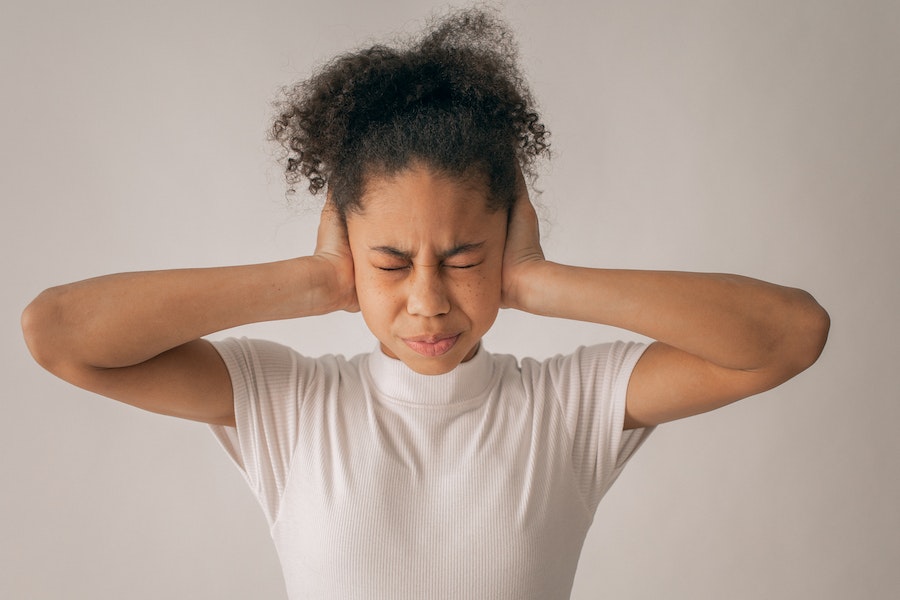Childhood is an important and formative time in everyone’s life, and no matter how hard parents may try to protect their children from stress, it is unavoidable. However, rather than viewing childhood stress as something that must be avoided at all costs, we should recognize the power of this emotion and use it to help us become more resilient adults.
Childhood stress can teach us valuable coping skills that can benefit us throughout our lives. It helps improve our problem-solving abilities and encourages us to forge strong social connections with others. Furthermore, it gives us the opportunity to learn how to manage our emotions by recognizing what triggers difficult feelings and developing strategies for dealing with them in a healthy way.
Rather than trying to shield children from stressful situations altogether, it’s important that they are given the emotional support they need while learning how to overcome challenges on their own terms.
Signs of Childhood Stress

Childhood is a period of exploration, learning, and growth. But for some, it can be challenging due to the presence of stressors. Stress in children can be caused by a variety of factors such as school pressure, bullying or family issues. It’s important to recognize the warning signs in order to take proactive steps to help your child manage their stress levels. The most common signs of childhood stress include physical and psychological complaints such as headaches, stomachaches, and irritability.
Changes in sleep patterns are also an indicator that something is wrong; either too much sleep or difficulty getting restful sleep should be taken seriously. Children may also start displaying disruptive behaviors like aggression or hyperactivity, or show signs of depression including sadness, low energy levels, and lack of motivation.
Causes of Childhood Stress

Childhood is a time of joy, adventure, and discovery. But despite all the exciting experiences that life throws at young people, they can also be vulnerable to feelings of stress. Stress in childhood can have a negative impact on physical and mental health and well-being, but understanding the causes of childhood stress can help parents and guardians to better support their children’s development.
There are many potential sources of stress in childhood. School-related issues such as heavy workloads or difficult subjects can lead to anxiety for some children. Unhealthy family dynamics such as parental arguments or divorce can also add pressure to children’s lives. Furthermore, young people may feel overwhelmed by expectations from friends or family members regarding their behavior or accomplishments. Additionally, stressful situations related to social media use such as cyberbullying are becoming increasingly common among today’s youth.
Effects of Childhood Stress
Childhood stress is a common experience for many kids today. But, the good news is that there are ways to help children cope with this kind of stress. Learning how to identify and manage stress in childhood can have long-term positive effects on emotional health, physical health, and well-being into adulthood.
Studies show that when children learn healthy coping strategies from an early age, they will be more likely to develop resilience and self-regulation as adults. Research has demonstrated that children who understand their own emotions are better able to manage their behavior both in school and at home.
By teaching them techniques such as mindfulness, relaxation exercises or other forms of self-care, parents can help their children build the skills required to handle difficult feelings and stressful events.
Solutions to Childhood Stress
Childhood is an important stage of life and it can set the foundation for a person’s future. While adolescence brings with it many positive experiences, it can also be a time of high-stress levels. It is essential to recognize when children may be feeling overwhelmed and provide them with support so they can develop healthy coping skills.
Fortunately, there are plenty of solutions that parents, teachers, and even children themselves can use to reduce childhood stress. For instance, developing open communication between family members ensures that children feel comfortable speaking about their worries and successes.
Encouraging physical activity such as outdoor play or sports helps both the mind and body relax after a stressful day at school or home. Additionally, providing children with ample amounts of sleep allows them to restore energy levels which in turn reduces stress hormones like cortisol.
The Power of Support
For many children, stress is a part of life. Whether it’s schoolwork, family issues, or just the pressures of growing up, childhood can be filled with obstacles that are difficult to tackle alone. But research has shown that having supportive people in one’s life can help mitigate stress and lead to better mental health outcomes.
When kids feel supported by those around them – parents, teachers, peers – they are able to build stronger coping skills which enable them to manage their emotions more effectively and lessen the effects of stress on both body and mind.
A supportive environment also gives children a sense of security and boosts self-confidence which helps them make decisions in challenging situations. Furthermore, when children receive support from adults who trust and care for them deeply, this connection leads to improved communication between generations and allows for healthy growth in relationships.
The conclusion of childhood stress is a positive one. Research has found that when children are given the opportunity to express their feelings and emotions in a healthy way, they can develop better-coping skills to manage stress. Children who have access to the right resources and an understanding environment can learn how to confront their stressors and take control of their mental health.
Overall, it’s clear that addressing childhood stress is an important issue for parents and educators alike. By recognizing the signs of stress in kids and helping them learn how to better deal with it, we can provide children with the tools they need to become emotionally strong adults. With continued efforts from both individuals and organizations, there is hope that we will be able to reduce levels of childhood stress in our society.

